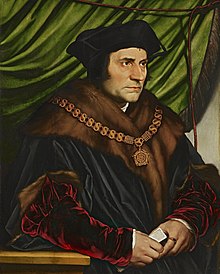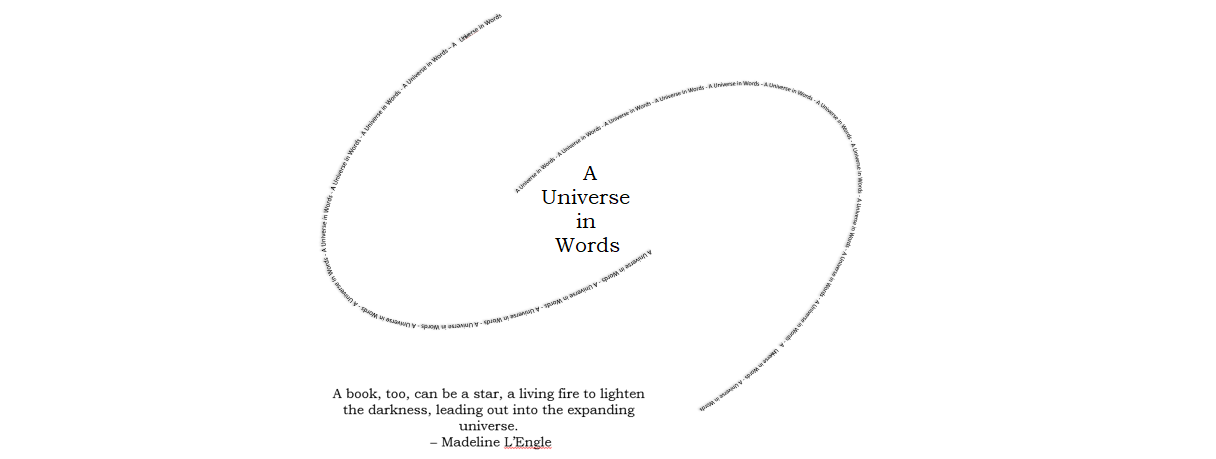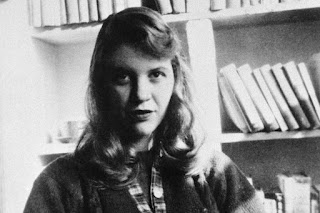Review: 'Utopia' by Thomas More
 University has started again which means I am not only buried in essays I need to hand in and format but also means I have to read books for the next couple of weeks. One of those books was 'Utopia' by Thomas More. I spent about 20 minutes in the bookstore looking for it until I had the bright idea to check out the philosophy aisle. I have nothing against reading philosophical works, I quite enjoyed Plato's 'The Republic' so I thought I would enjoy this too. How wrong I was. This is what Goodreads has to say:
University has started again which means I am not only buried in essays I need to hand in and format but also means I have to read books for the next couple of weeks. One of those books was 'Utopia' by Thomas More. I spent about 20 minutes in the bookstore looking for it until I had the bright idea to check out the philosophy aisle. I have nothing against reading philosophical works, I quite enjoyed Plato's 'The Republic' so I thought I would enjoy this too. How wrong I was. This is what Goodreads has to say:First published in 1516, Thomas More's Utopia is one of the most important works of European humanism. Through the voice of the mysterious traveler Raphael Hythloday, More describes a pagan, communist city-state governed by reason. Addressing such issues as religious pluralism, women's rights, state-sponsored education, colonialism, and justified warfare, Utopia seems remarkably contemporary nearly five centuries after it was written, and it remains a foundational text in philosophy and political theory
My copy's marked as a translation, which mainly means that some of the names have been changed and words such as 'communism' and 'capitalism' are used. I'm pretty sure More didn't coin those as well. In me edition, Raphael is called Raphael Nonsenso. To anyone with a grasp of English that last name comes dangerously close to 'nonsense' which made me groan inwardly. I don't think I needed the editor's help in deducing that this Utopia isn't in fact real. To then name the capital Aircastle is just going too far. I would have much preferred More's name for it: Amaurot. Perhaps I would have enjoyed this book more had I read a different edition, so for anyone who wants the real More-experience, don't get the Penguin version shown above. If you just want to know what the book's about then this version is perfect: small and compact without long introductions.
 Now to get on to the actual text. I did not like this at all. I am completely aware that More is not trying to show a perfect world but is trying to create a mirror for England so it can think about some of its actions. But that doesn't mean I have to agree with what it says. As a philosophical starting point it is perfect: there will be loads of discussions afterwards and there are bound to be disagreements. But personally I did not only think that Utopia was nowhere near a perfect society nor did I think that More did an exceptionally good job at writing about it. And I disagree with Goodreads saying it has 'contemporary' value.Yes, it is influential, but our (especially European) societies have moved beyond what More described.
Now to get on to the actual text. I did not like this at all. I am completely aware that More is not trying to show a perfect world but is trying to create a mirror for England so it can think about some of its actions. But that doesn't mean I have to agree with what it says. As a philosophical starting point it is perfect: there will be loads of discussions afterwards and there are bound to be disagreements. But personally I did not only think that Utopia was nowhere near a perfect society nor did I think that More did an exceptionally good job at writing about it. And I disagree with Goodreads saying it has 'contemporary' value.Yes, it is influential, but our (especially European) societies have moved beyond what More described.Leaving its influence aside, I got increasingly frustrated while reading 'Utopia'. It seems as if More was contradicting himself the entire time in his account of Utopia. For example, in one place he says they never go to war or use violence unless 'in self-defence, to repel invaders from friendly territory, or to liberate the victims of dictatorship' in which case they go in out of 'humanity'. Not 40 pages earlier did he write how Utopians go about colonization: 'If the natives won't do what they're told, they're expelled from the area'.
Next to this I also found the flippant remarks about women obeying their husbands and slaves being treated terribly unless they're voluntary slaves (a ridiculous concept) astounding. I even got a highlighter out to highlight the passages I thought were politically wrong. I am usually a very laid-back reader, even appreciating it when a villain behaves terribly because that is how novels work: bad guys do bad things.To a book, however, that has been praised as a 'foundational text in philosophy and political theory' I didn't expect to have such a response.
Perhaps that is where More's genius lies: he draws you out, makes you voice your opinion. And while you criticize Utopia, you cannot help seeing how similar some of its aspects are to our world. Do you agree with Raphael's view of the perfect world or do you disagree, at the cost of being ridiculed by Raphael? I give this book...

3 UNIVERSES!!!
Personally I disagreed with any things that were said in the book which is why I gave it such a "low" rating for a classic. More's writing style is, however, good and I don't know how heavily my edition and therefore judgement is influenced by Paul Turner's translation. I do recommend it to everyone who wants a good discussion about politics and society.
Here are some of my "favourite" wrong quotes from the book:
- 'If there happens to be a church in the Sty, the priest and his wife automatically take precedence...' - oh, what a fair society this is!
- '...except certain people receive preferential treatment, such as the Mayor, the Bishop, Bencheaters and diplomats.' - again, you have to admire those little side comments.
- 'And reason also teaches us, first to love and reverence Almighty God.' - I know More was a religious man, but I don't know whether Reason is what converts people to Christianity.
And finally:
- 'But in no circumstances can a man divorce his wife simply because, through no fault of her own, she has deteriorated physically'. - I'm not quite sure yet whether I think that's offensive or whether that's More being funny.
So, what do you think? Does this look like your kind of book?



Some years ago I really wanted to read this book, but after a while, because I never bought it, I kind of forgot about it's existence. Right now I'm excited again. I love your post. I really have to read it.
ReplyDeleteI'm now a new follower of your blog and following you on twitter too.
Please, if you can visit mine and follow too :)
Ladybug, http://english-written-portairt.blogspot.pt